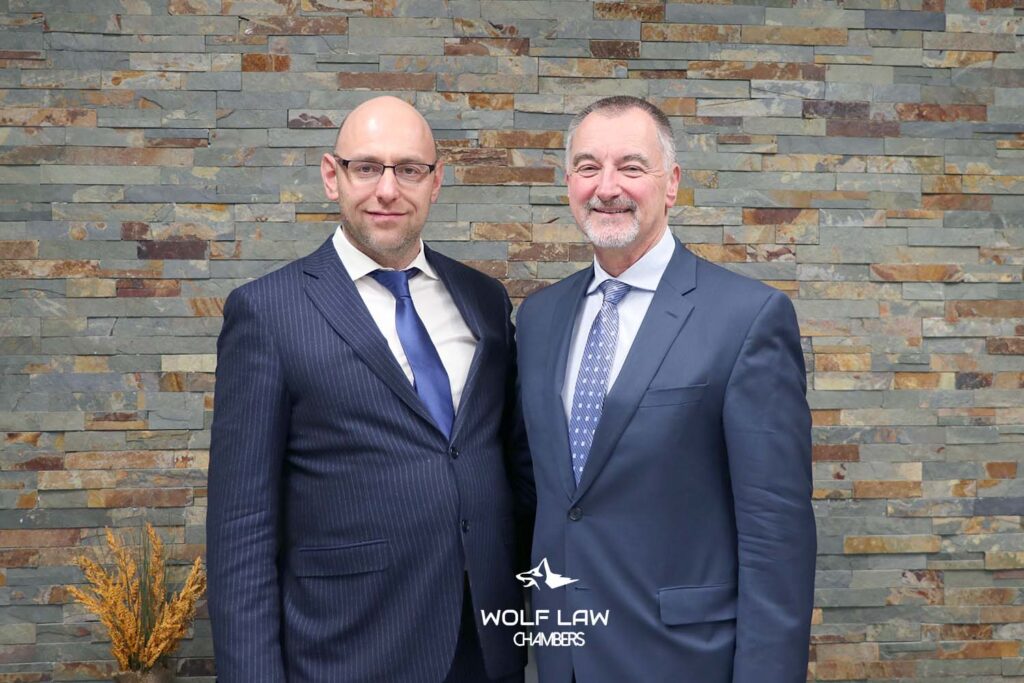BENEFITS
How Wolf Law Chambers’ Business Hours Phone Answering Services Boost Efficiency
In the competitive and demanding field of law, every second counts, especially during business hours when the pace intensifies. Wolf Law Chambers recognizes the unique challenges law firms face in managing their time and resources efficiently. Their business hours phone answering services are designed to alleviate these pressures, ensuring that law firms can focus on their core activities while never missing an important call. Let’s explore the benefits of integrating Wolf Law Chambers’ services into your daily operations and how it can transform your law firm’s productivity and client satisfaction.
Enhancing First Impressions
The initial contact between a law firm and a potential client sets the tone for the entire relationship. Wolf Law Chambers ensures that each call is answered promptly and professionally, providing a positive first impression that reflects well on your firm. This professional handling reassures clients and prospects of your firm’s commitment to excellence, even before they’ve officially become your client.
Efficient Call Management
During the hustle and bustle of business hours, managing incoming calls can be a significant distraction for your legal team, pulling them away from their critical legal work. Wolf Law Chambers’ phone answering services expertly manage your calls, allowing your team to concentrate on their tasks with fewer interruptions. This efficiency is vital for maintaining productivity and meeting the demands of your caseload.
Customized Call Routing
Not all calls require immediate attention from your senior legal staff, yet distinguishing between them in real-time can be challenging. Wolf Law Chambers offers customized call routing, ensuring that calls are directed to the right person at the right time. Whether it’s a new client inquiry, a call from the court, or a routine administrative question, their team can screen and route calls based on your firm’s specific instructions. This targeted approach prevents disruptions and ensures that high-priority calls receive the urgent attention they deserve.
Reducing Administrative Burden
Your administrative staff plays a crucial role in the smooth operation of your law firm. However, if they’re constantly managing a high volume of calls, their ability to perform other essential tasks can be compromised. By leveraging Wolf Law Chambers’ phone answering services, you can alleviate this burden, freeing your staff to focus on high-value activities that enhance your firm’s operations and client service.
Maximizing Billable Hours
Every minute your legal team spends on non-billable tasks is a minute not spent generating revenue for your firm. In the legal profession, where billable hours are a key metric of success, optimizing the time your team spends on client work is crucial. Wolf Law Chambers’ phone answering services play a pivotal role in ensuring that your legal team’s time is used as efficiently as possible, maximizing your firm’s profitability.
Strengthening Client Relationships
Timely and professional communication is the backbone of strong client relationships in the legal field. Wolf Law Chambers helps ensure that your clients’ calls are always answered within business hours, conveying a message of reliability and attentiveness. This consistent communication standard can significantly enhance client satisfaction and loyalty, contributing to your firm’s long-term success.
Conclusion
Incorporating Wolf Law Chambers’ business hours phone answering services into your law firm’s operations offers a strategic advantage, allowing you to optimize your time, enhance client satisfaction, and improve your bottom line. By entrusting your call management to their professional team, your firm can focus on what it does best: delivering exceptional legal services. Embrace the change and watch your law firm thrive in efficiency and client relations.
Finding the Right Client for Your Practice
On February 19, Wolf Law Chambers welcomed Kim Piller from Sandler Training to give a talk on how lawyers and paralegals can increase their sales effectiveness.
Thanks to everyone who came!
Dezso Farkas, the Director of Wolf Law Chambers, started the evening with a summary as to why lawyers and paralegals don’t like to sell. When it comes down to it, there’s a negative connotation associated with sales. There’s also a general feeling that sales are not what the legal practitioner is trained to do. Law is what they trained to do. But as sole practitioners or small firms, the reality is that finding clients, promoting your practice is something you have to do.

In his presentation, Kim Piller spoke about why some sales fail: “winging” the sales pitch, lack of a plan, not really knowing what you’re selling, no process in place, and sometimes a sheer lack of compatibility. But all of that can be overcome. He provided tips and techniques to help make connections and land new clients.

He advocated for putting a system in place to help you sell. With a system, you’ll know what beats to hit in your sales pitch and this will help you maintain control, save time, stay on track, duplicate positive results and recognize any problems.
The goal is to get a positive result: a yes, a no, or a referral. Although getting a “no” may be counterintuitive as a positive result, it can lead to a lesson learned or simply saved time. Maybe’s are the negative result; causing you to bleed time and resources.
In the end, he reminded everyone, the thing to remember is people decide to purchase or choose you as their legal practitioner based on emotions. They will justify it later intellectually, but the emotions they feel are the deciding factor.
- Look at their personal needs.
- Be a good listener.
- Understand why they are coming to you.
The Advantages of Incorporating your Professional Practice
Since November 1st, 2001, professionals have been entitled to incorporating their practice under the Business Corporations Act as provincial governments changed their incorporation laws to include professionals [1]. Incorporating a professional practice is a pivotal step forward in securing financial advantages. Whether it be through tax deferrals, individual pension plans, health and welfare trusts, the lifetime capital gains exemption, and/or limited shareholder liability, incorporating enables professionals to benefit from potential advantages that would not be available if they operated under sole proprietorship.

Tax Deferral
Tax legislation makes a corporation a separate taxpayer and its own legal entity [1]. Deferring taxes may single handedly be the most beneficial aspect of incorporating your legal practice. The income earned within a corporation is taxed at two separate levels: at the corporate level and then again at the personal level when the income gets distributed [2]. Once you incorporate, tax rates for the corporation become significantly lower than personal tax rates. There is flexibility that lies in deferring personal taxation as corporate surplus inside the corporation. This can defer one’s personal income taxes and although these tax-deferred funds will be withdrawn at some point in time, it is clear that the compounding effect can be very beneficial over long periods of time [3].
Income earned from operating your professional practice within a corporation is taxed at a lower corporate tax rate than the income you may earn under sole proprietorship. Sole proprietors are taxed at an individual marginal tax rate, for which the highest marginal tax rate for individuals in some provinces and territories was higher than 50% for 2018 [4]. The marginal income tax rate will increase for an individual as income increases. On the contrary, professional income earned within a corporation is subject to being taxed at a lower corporate tax rate. In 2018, this rate ranged from 26.5% – 31%, which is significantly lower than the former figure [5]. Lower corporate tax rates for active business income leaves professionals with more after tax income within the corporation to invest at their discretion.
Furthermore, corporations that are legally defined as a Canadian controlled private corporation (CCPC), can benefit from the federal small business deduction. This benefit lowers the tax rate even further on the first $500,000 of active business income [4]. This figure is known as the ‘business limit’ and it varies by province/territory. The small business deduction rate also varies by province and territory, and the combined federal and provincial tax on income subject to the small business rate ranged from 12% to 22% in 2018 [5]. That is definitely not bad a tax rate that would otherwise be 38%, which is what the corporate would have to pay according to Part I of the Income Tax Act [2].
| Small Business Deduction Limits/Rates (2019) | Small Business Limit | Rate % | Combined Fed/Prov. Rate% |
| Federal | $500,000 | 9.00 | |
| Provincial: | |||
| Alberta | $500,000 | 3.00 | 12.00 |
| British Columbia | $500,000 | 2.00 | 11.00 |
| Manitoba | $425,000 | 0.00 | 9.00 |
| New Brunswick | $500,000 | 2.50 | 11.50 |
| Newfoundland and Labrador | $500,000 | 3.00 | 12.00 |
| Northwest Territories | $500,000 | 4.00 | 13.00 |
| Nova Scotia | $350,000 | 3.00 | 12.00 |
| Nunavut | $500,000 | 4.00 | 13.00 |
| Ontario | $500,000 | 3.50 | 12.50 |
| Prince Edward Island | $500,000 | 3.50 | 12.50 |
| Quebec | $500,000 | ||
| Without MPP* | 8.00 | 17.00 | |
| MPP* | 4.00 | 13.00 | |
| Saskatchewan | $500,000 | 2.00 | 11.00 |
| Yukon | $500,000 | ||
| Without MPP* | 2.00 | 11.00 | |
| MPP* | 1.50 | 10.50 |
*Manufacturing and Processing Profits Tax Credit

IPP’s
An individual pension plan (IPP) is specifically designed for an incorporated professional and/or business owner of an incorporated company, age 40 or over [1]. With that said, it is not to say that someone under 40 cannot contribute to an IPP. An IPP is funded by corporate assets with the intention of providing post-career income to the contributor. IPP investments grow on a tax-deferred basis and usually provide higher contributions than those permitted by Registered Retirement Savings Plans (RRSP’s) [1]. Additionally, fees incurred from setting up and administering an IPP are tax deductible by the employer [1].

Health and Welfare Trusts
A health and welfare plan is a corporate arrangement set up by the employer and can provide employees compensation for medical and/or dental expenses. Coverage extends from the incorporated professionals to those employed by the corporation. This plan can provide coverage for medical expenses incurred outside of provincial or insurance plans. This tax-free benefit can make medical and dental expenses tax deductible for the corporation [5].

Lifetime Capital Gains Exemption
Each Canadian was entitled to a capital gains exemption of up to $848,252 in 2018 and this figure is indexed annually [4]. The Lifetime Capital Gains Exemption (LCGE) enables shareholders to reap the benefits of significant tax breaks on capital gained through the sale of private company shares. This is solely applicable to qualified small business corporation sales but is a benefit every Canadian is entitled to. Family members who own shares of a single professional corporation can multiply the LCGE available upon the sale of the qualified small business corporation, resulting in significant tax savings [3].

Limited Shareholder Liability
Incorporating your professional practice limits the liability of the corporation’s shareholders. Unless a shareholder has provided a personal guarantee, they are not subject to responsibility for the corporation’s liabilities. Nonetheless, a professional corporation does not protect individuals from personal liability for negligence [5].
Closing Remarks
Incorporating your professional practice provides endless potential for possible tax breaks, retirement savings, health benefits, minimizing capital gains on the disposition of private company shares, and protection from potential legal liabilities. With that said, professionals operating in different fields should definitely consider incorporating their practice as it is a simple process that presents an abundance of opportunity for one’s welfare. If you are still not sure about what incorporating can do for you, contact a professional who knows exactly how to help.

Greater Toronto Area based lawyer, Dezso Farkas, who operates under FARKAS LEGAL PROFESSIONAL CORPORATION, has helped many professionals incorporate their practice from start to finish. He has advised corporations and caters his services to their needs in order to maximize potential benefits. He believes in helping businesses grow and enabling business owners to benefit from the advantages that can be sought through incorporation. For professional advice please feel free to contact Mr. Farkas at (416) 735-6645.
-Narvir Goindi
[1] RBC. ‘Is incorporating your professional practice right for you?’ (2018) 6:2 Investment, tax and lifestyle perspectives from RBC Wealth Management Services. https://www.rbcwealthmanagement.com/ca/en/research-insights/is-incorporating-your-professional-practice-right-for-you/detail/ [2] Service Ontario. ‘Incorporating a business corporation’ (2019) Business and economy. https://www.ontario.ca/page/incorporating-business-corporation [3] Rotfleisch & Samulovitch P.C. ‘Lawyers Advantages of Incorporation – Ontario Tax Lawyer Comments’ (2019) Taxpage.com. https://taxpage.com/articles-and-tips/incorporation/lawyers-advantages/ [4] TurboTax Canada. ‘Lifetime Capital Gains Exemption’. (2019) SAVINGS & INVESTMENTS. https://turbotax.intuit.ca/tips/lifetime-capital-gains-exemption-6258 [5] Acton, Alan. ‘Should you incorporate your legal practice?’ (2010) CANADIAN LAWYER. https://www.canadianlawyermag.com/news/general/should-you-incorporate-your-legal-practice/267749


















